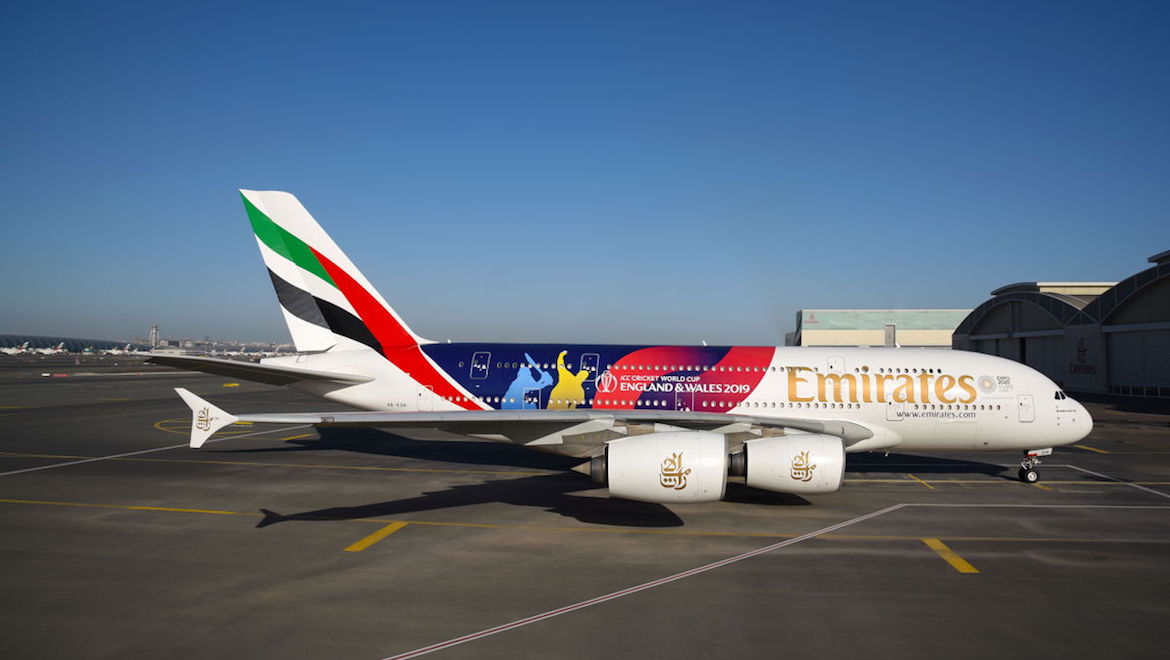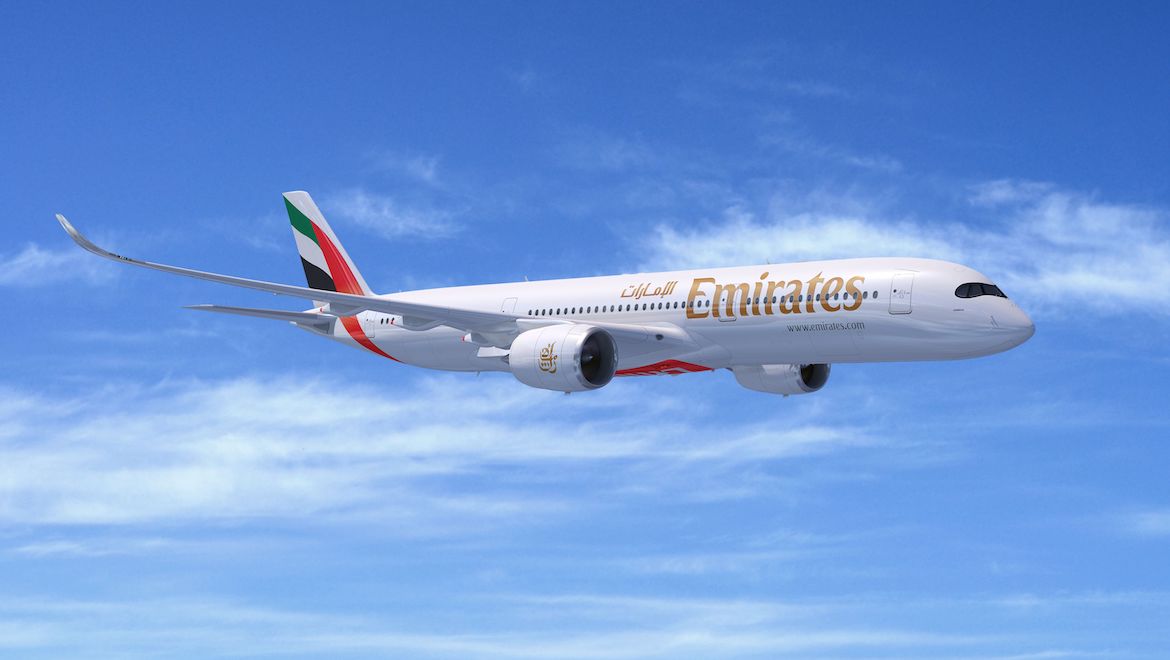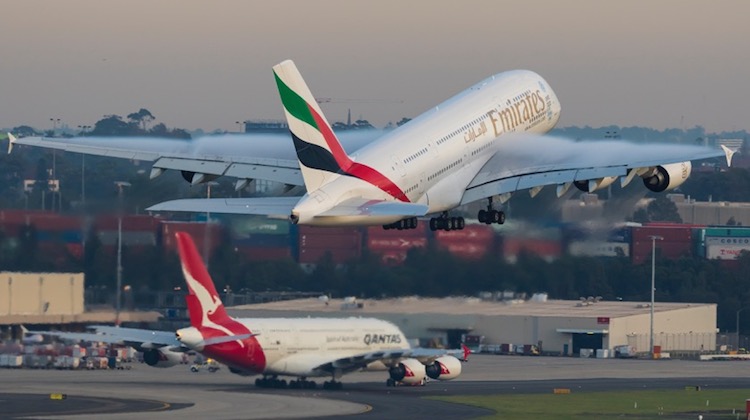
Emirates has reported a 69 per cent decline in full year net profit as higher fuel costs, a stronger US dollar and weaker passenger growth hit the bottom line in fiscal 2019.
The state-owned, Dubai-based carrier posted net profit of 871 million Emirati dirham (A$339.51 million) for the 12 months to March 31 2019, down from 2.8 billion Emirati dirham in the prior corresponding period.
It was the lowest profit result in 10 years.
Revenue at the airline rose six per cent to 97.9 dirham, Emirates Group said in its fiscal 2019 annual report released on Thursday (United Arab Emirates time).
Emirates Group chairman and chief executive Sheikh Ahmed bin Saeed Al Maktoum said the past year had been tough and the performance was not as strong as the carrier would have liked.
“Higher oil prices and the strengthened US dollar eroded our earnings, even as competition intensified in our key markets,” Al Maktoum said in the annual report.
“The uptick in global air freight demand from the previous year appears to have gone into reverse gear, and we also saw travel demand weaken, particularly in our region, impacting both dnata and Emirates.”
The Emirates Group comprises two main business units – Emirates Airline and logistics company dnata. Al Maktoum is also chairman and chief executive of Emirates Airline.
During fiscal 2019, the group collectively invested 14.6 billion dirham in new aircraft and equipment, the acquisition of companies, modern facilities, the latest technologies, and staff initiatives, Al Maktoum said, noting investment was up significantly over the prior year’s spend of 9 billion dirham.
In terms of aircraft orders, Emirates announced in February an order for 40 Airbus A330-900s and 30 Airbus A350-900s for delivery in 2021 and 2024, respectively.
The airline will also receive 14 more A380 aircraft from this year until the end of 2021, taking its A380 fleet to 123.
The carrier said in February it had cancelled dozens of A380 orders, replacing them with the smaller Airbus aircraft.

While Emirates had announced a deal with Boeing in November 2017 for 40 787-10 aircraft, the type did not appear on its list of future aircraft on order in the annual report, suggesting it may have been cancelled. The commitment was never firmed up and does not appear on the Boeing website.
The number of airline employees fell by 2,074, or 3.3 per cent. However, the group workforce rose by 1.9 per cent to 105,286, mainly on the back of dnata expansion, the annual report said.

Unrelenting headwinds of rising oil prices
Revenue in the airline business rose 5.3 per cent to 96 billion dirham.
The East Asia and Australasia region comprised the second largest source of revenue at 27.7 per cent (26.6 billion dirham) behind Europe at 29.4 per cent (28.3 billion dirham). Emirates serves Adelaide, Auckland, Brisbane, Christchurch, Melbourne, Perth and Sydney in this part of the world.
The airline grew capacity, measured by available seat kilometres (ASK) 3.6 per cent in fiscal 2019, while the number of passengers carried inched marginally higher to 58.6 million, from 58.5 million in the prior year.
Emirates, a Qantas alliance partner, said its fuel bill increased 25 per cent to 30.8 billion dirham, the highest in the airline’s history. Further, fuel accounted for 32 per cent of operating costs in fiscal 2019, compared with 28 per cent in the prior year.
“Despite the unrelenting headwinds of rising oil prices, unfavourable currency movements in certain markets and cutthroat competition; financial year 2018-19 marked our 31st consecutive profitable year,” the annual report said of Emirates Airline’s results.
The airline received 13 new aircraft during fiscal 2019, comprising seven A380s and six Boeing 777-300ERs. Emirates was expected to receive its first Boeing 777-9X in 2020. After phasing out 11 older aircraft, the fleet stood at 270 at the end of March, with an average age of 6.1 years.
Emirates said highlights of the past year included a broadening of its partnership network. It signed codeshare agreements with Jetstar Pacific and China Southern Airlines and enhanced a commercial strategic partnership with South African Airways.
In terms of the outlook Al Maktoum said it was hard to predict the year ahead.
However, he said both Emirates and dnata were “well positioned to navigate speed bumps, as well as to compete and succeed in the global marketplace”.
Meanwhile, dnata posted net profit of 1.4 billion dirham, up 9.7 per cent from the prior corresponding period.
It was announced in April 2018 dnata had agreed to purchase Qantas’s Q Catering operations in Brisbane, Melbourne, Perth and Sydney) and frozen food maker Snap Fresh (based at Logan City in Queensland) for an undisclosed sum.
Emirates Group’s net profit fell 44 per cent to 2.3 billion dirham, its lowest in seven years. The company’s cash balance of 22.2 billion dirham was down 13 per cent on the prior year due, it said, to significant acquisitions and a 2 billion dirham dividend paid to its owners. The group has more than 120 subsidiaries.
Despite the profit decline, Enirates Group declared a dividend of 500 million dirham.





